Junior doctors' strike: Some hospitals request staff return to work
- Published
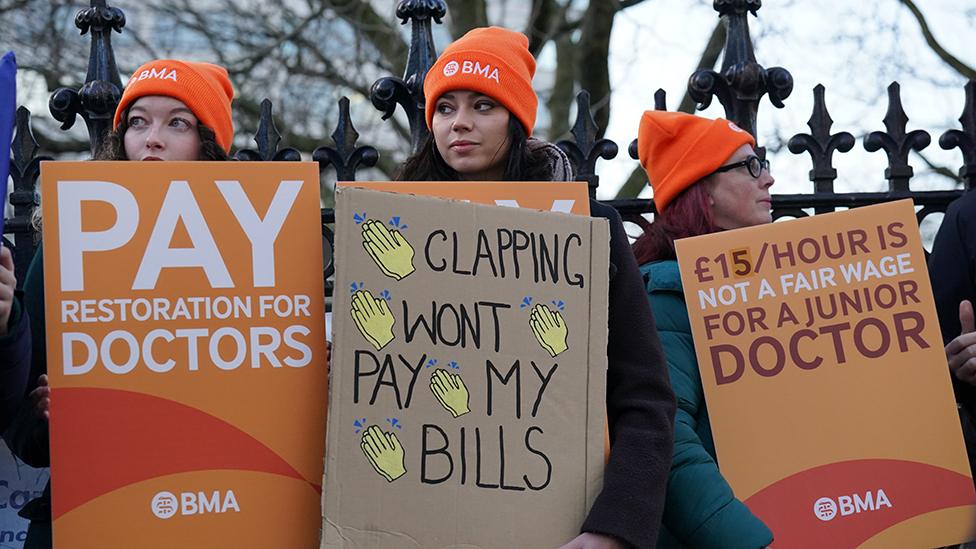
Junior doctors have walked on the first day of a six day walkout
NHS bosses have made more than 20 requests for striking junior doctors in England to be allowed to cross the picket line to help out services.
None of the requests made on the first strike day have been granted so far by the British Medical Association (BMA).
The union accused NHS bosses of misusing the system known as derogation and bowing to political pressure to undermine the strike.
But NHS England said they were genuine requests for help.
It said the health service was under huge pressure after the six-day walkout began on Wednesday, and NHS bosses were trying everything they could to protect patients and keep struggling services safe.
"Given this period of industrial action coincides with the most difficult time of year for the NHS, it is to be expected that more senior medical leaders will ask for allowances to be made to ensure safe levels of cover," the spokesman added.
Prime Minister Rishi Sunak has also given his backing to the requests.
"It is right the NHS does absolutely everything it can to ensure patient care," he said.
"These strikes are disrupting people's lives and causing an enormous amount of concern."
The requests are made by individual departments so some NHS trusts are thought to have made more than one request. Most involve emergency care areas, such as A&E units.
This is the ninth walkout - and longest ever - by junior doctors, and before this stoppage only a handful of requests had been made. Two of them were granted.
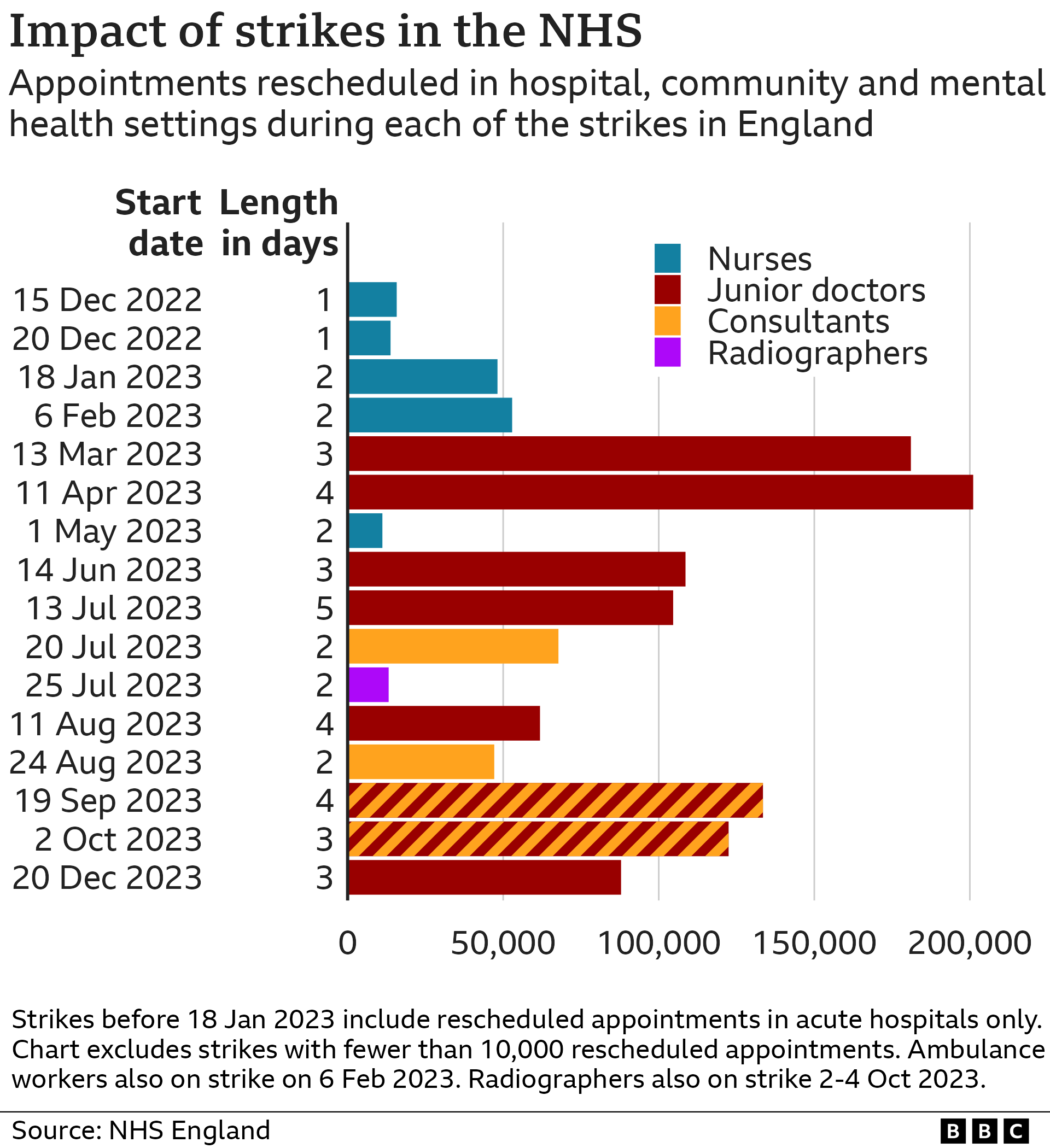
In a letter to NHS England boss Amanda Pritchard on Wednesday, BMA leader Prof Philip Banfield said in many cases insufficient information was being provided by the NHS to judge the merits of the request.
He said this was "undermining" the derogation process and placing the BMA in an impossible position.
"We are increasingly drawing the conclusion that NHS England's change in attitude towards the process is not due to concerns around patient safety, but due to political pressure to maintain a higher level of service and undermine our strike action."
But Matthew Taylor, of the NHS Confederation, which represents hospitals, criticised the BMA.
"This is more about them needing to limit the precious time they and their teams have available to filling in forms when patient safety could be at risk."
He pointed out his organisation has called for national exemptions to allow junior doctors to work in critical areas such as urgent cancer care and maternity services.
The trusts that made the requests are not being named.
Hospitals have drafted in senior doctors to cover for junior doctors who go out on strike.
This has meant that routine services have been scaled back en masse.
But since the start of the walkout on Wednesday at 07:00 GST several NHS trusts have reported problems with some declaring a critical incident, meaning bosses were concerned they could not provide critical services for patients.
Queen Alexandra Hospital in Portsmouth said its A&E department was "full" as it declared a critical incident - its third in three months.
In Nottinghamshire, the entire Nottingham and Nottinghamshire NHS system declared a critical incident at 16:30 GMT.
Cheltenham A&E has been closed with patients diverted elsewhere, and Bolton NHS Foundation Trust said it was facing "extreme pressure" with waiting times in A&E of "up to 11 hours".
Warwick Hospital warned it was under "extreme heightened pressure", while Airedale Hospital said its emergency department was "exceptionally busy".
Health officials in East Sussex, South Tees, Gateshead, Greater Manchester, Berkshire, Rotherham and Harlow in Essex also reported being "busy".
Earlier on Wednesday, one of the co-chairs of the BMA, Dr Vivek Trivedi, told the BBC that the union would be prepared to end its walkout if the government made it a fresh and "credible" offer.
However, ministers say they are not prepared to negotiate while strikes are ongoing.
In an interview with the BBC, Dr Trivedi said: "Anyone from the government could still come to us today and if we thought that offer was credible, and if we can resume talks and build on that, then we can stop our strike action for the rest of the week."
While the BMA - which represents doctors in the UK - has asked for a 35% pay increase, he said it did not necessarily need to have that all in one go.
"We're not even saying it has to happen in one year.
"We are very happy to look over details that would span a number of years - but what we need to do is to start a way towards that, and not further that pay erosion."
Health Secretary Victoria Atkins said junior doctors had to call off their strike before she was prepared to get back to the negotiating table.
She said she wanted to find a "fair and reasonable solution to end the strikes once and for all".
Junior doctors received a pay rise averaging nearly 9% this financial year - and during talks at the end of last year, the option of an extra 3% on top of that was discussed.
But those talks ended in early December without a deal being reached.

Sign up for our morning newsletter and get BBC News in your inbox.


Are you a junior doctor with a view on the strike? Are you a patient affected? Email haveyoursay@bbc.co.uk, external.
Please include a contact number if you are willing to speak to a BBC journalist. You can also get in touch in the following ways:
WhatsApp: +44 7756 165803
Tweet: @BBC_HaveYourSay, external
Please read our terms & conditions and privacy policy
If you are reading this page and can't see the form you will need to visit the mobile version of the BBC website to submit your question or comment or you can email us at HaveYourSay@bbc.co.uk, external. Please include your name, age and location with any submission.
Related topics
- Published3 January 2024
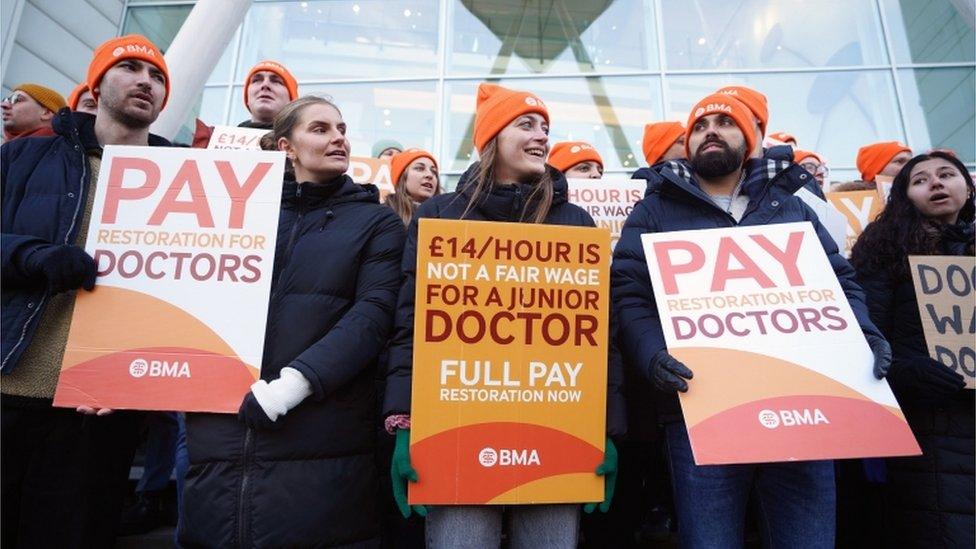
- Published27 November 2023
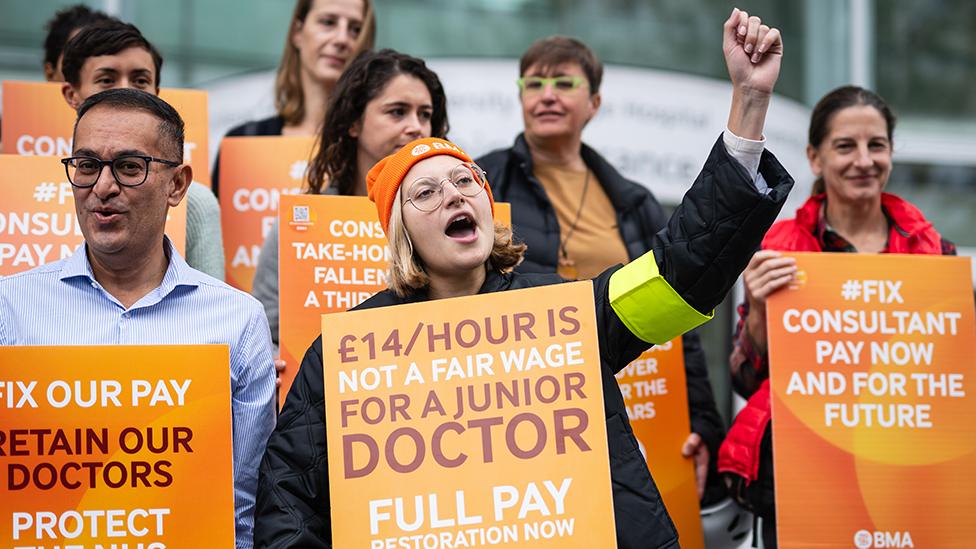
- Published2 May 2023
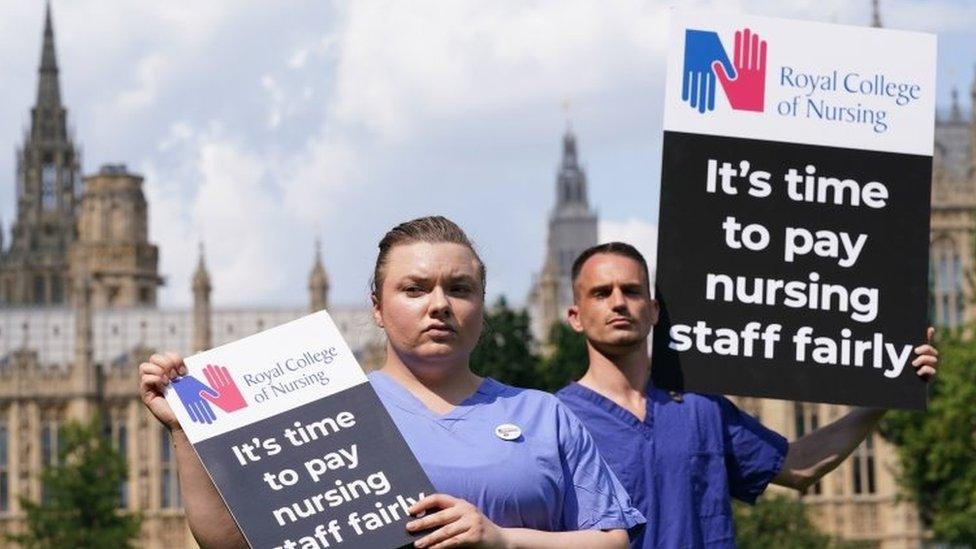
- Published9 August 2023
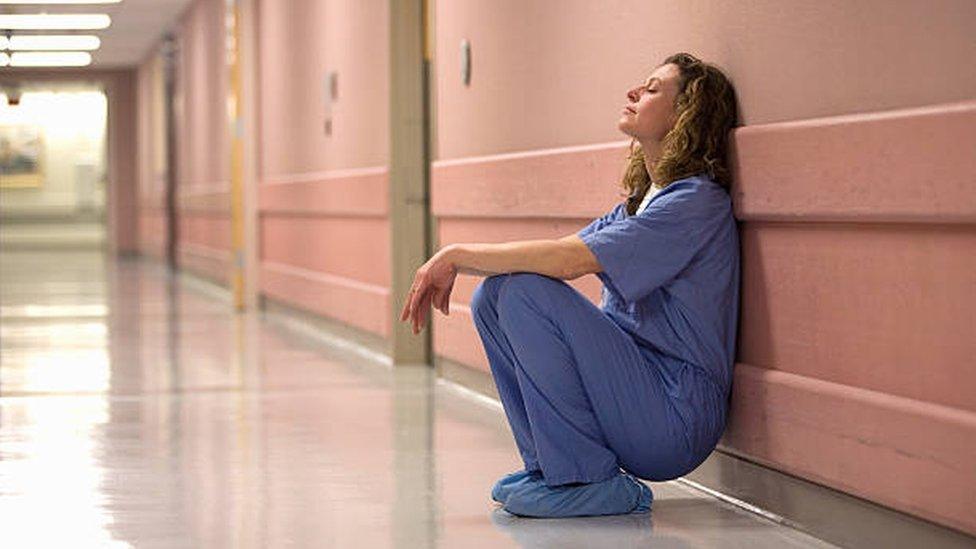
- Published2 May 2023
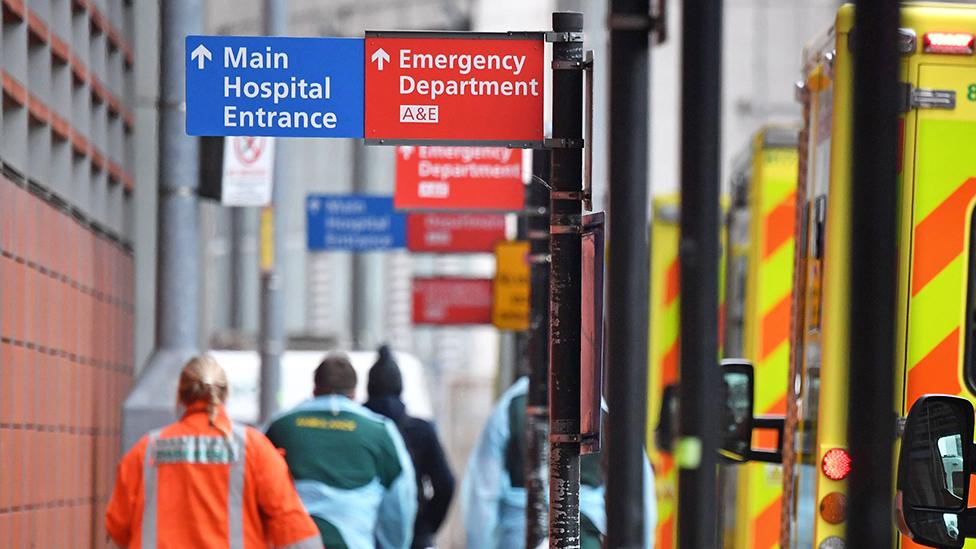
- Published11 August 2023

